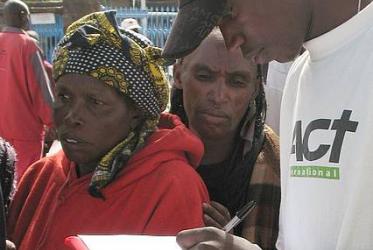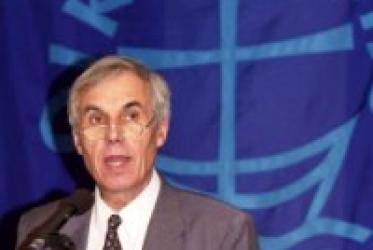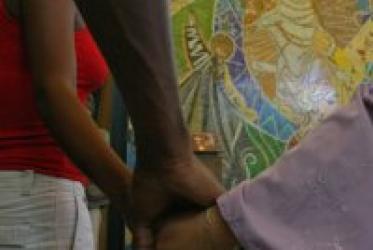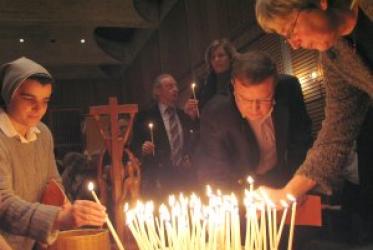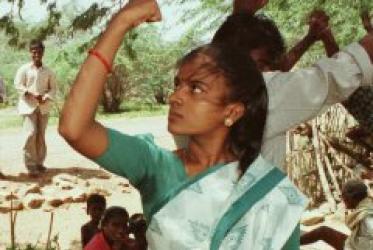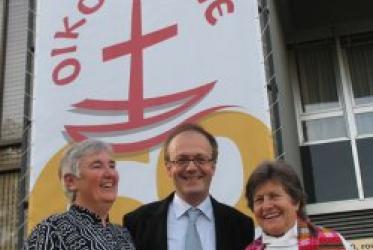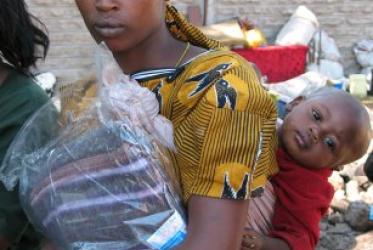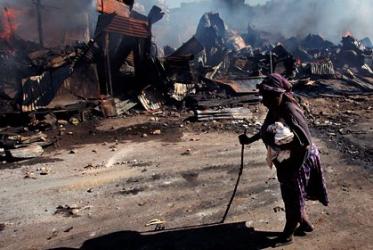Displaying 7561 - 7580 of 8636
04 February 2008
Eminent Ecumenical Persons on solidarity visit to Burundi
04 February 2008
Kenyan churches seek peace for country "on the verge of genocide"
01 February 2008
Kenyan churches to receive WCC solidarity visit
29 January 2008
Konrad Raiser's 70th birthday
25 January 2008
WCC general secretary confident about Christian unity progress
25 January 2008
Christian youth movements call for signs of unity
24 January 2008
Re-inventing Dalit theology for the 21st century
21 January 2008
Prayer for unity ever more needed in the face of human suffering
21 January 2008
Praying for Christian unity amidst violence and HIV/AIDS
15 January 2008
WCC director applauds liberation of Colombian hostages
14 January 2008
WCC president receives honor
04 January 2008



